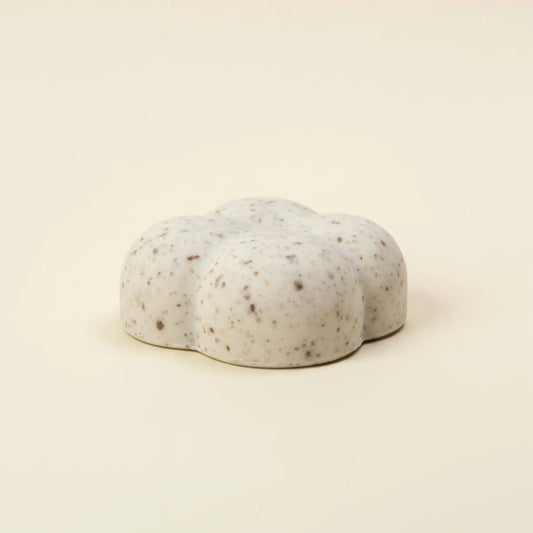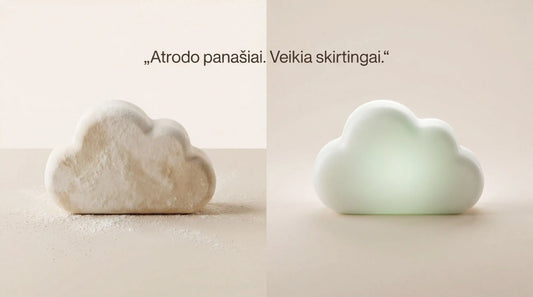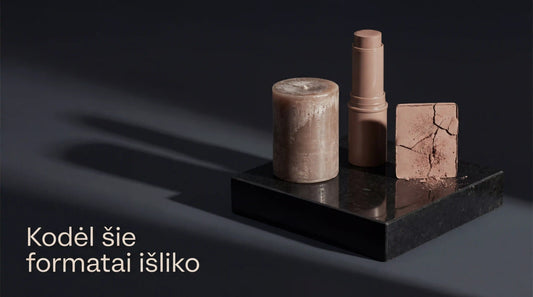From ancient religious practices where hair was offered to the gods to modern spiritual rituals in the New Age movement, hair has always been considered mystical. Why is it so important? Hair is often considered a carrier of energy, identity, and connection to the divine. In this article, we will explore the intriguing role of hair in religion and spirituality, revealing interesting ancient practices and modern beliefs.

Religious traditions involving hair sacrifice
Hair sacrifice has played an important role in many religious traditions. Historically, people have sacrificed their hair as an act of devotion, purification, or gratitude. The ritual symbolizes a personal commitment and is often seen as a powerful way to renounce the ego or earn the grace of the divine.
Hinduism: Shaving for Cleanliness and Devotion
In Hinduism, head shaving (tonsura) is a common and powerful ritual. Believers sacrifice their hair as a symbol of humility and a way to renounce material concerns. At the most famous temple in South India, Tirupati, 20–25 million people sacrifice their hair each year as part of a religious vow or in gratitude to the deity Venkateswara for answered prayers. The temple collects these hair offerings, and their sales (especially for wigs and hair extensions) bring in about $6 million a year, which is donated to charity and the temple's upkeep.

For Hindus, hair sacrifice is deeply symbolic. It signifies surrender and the renunciation of ego. Believers often choose to shave their heads after significant life events, such as the birth of a child, a wedding, or the fulfillment of a vow. The act is also connected to the broader concept of moksha , or spiritual liberation, through the abandonment of attachment to worldly beauty and vanity.
- Fun fact : In ancient Hindu practices, warriors would sometimes leave a lock of their hair unshaven before battle as a connection to their ancestors and divinity. It was believed that this hair would provide them with strength and protection.
Buddhism: Renunciation of Worldly Attachments
In Buddhism, the act of sacrificing one's hair has a spiritual meaning related to renunciation and humility. When a person becomes a monk or nun, shaving their head symbolizes the renunciation of worldly attachments and vanity. It is a visual sign of their dedication to living a simple and mindful life.
This practice is particularly evident during the ordination process, when new monks shave their heads to demonstrate their commitment to the eightfold path. In Thailand, during the Pabbajja ceremony, novices shave their heads to temporarily become monks, often to honor their parents and bring spiritual benefits to the family.

- Cultural example : In Tibetan Buddhism, ritual hair shaving, known as gso ba , is performed to purify the spirit before important ceremonies. Hair is also sometimes collected and burned as an offering during cremation rites, symbolizing the renunciation of attachment to the physical body.
Christianity: Hair Symbolism in Religious Practice
In Christianity, the tradition of hair sacrifice is not as formal as in Hinduism or Buddhism, but it still has a spiritual significance. Historically, in Catholicism, nuns shaved their heads upon entering a convent as a symbol of renunciation of worldly life and dedication to God. This practice, known as "cutting the crown," marked a woman's complete dedication to the spiritual path.
Additionally, some saints in Christian history are known for their relationship with hair. St. Clare of Assisi , one of St. Francis' followers, cut her hair to show her defiance of societal expectations for women and her devotion to God. Similarly, Mary Magdalene , a penitent saint, is often depicted with long, flowing hair, symbolizing her spiritual transformation and devotion.

- Fun fact : In 13th-century France, it was customary for brides to donate a lock of their hair to the church before marriage, symbolizing their purity and devotion to God before moving into a new stage of life as a wife.
Hair in modern spiritual practices
Hair continues to have symbolic significance in modern spiritual practices, particularly in New Age beliefs and energy healing. Whether grown long or used in rituals, hair is considered a conductor of spiritual energy and a tool for personal transformation.
New Age Beliefs: Hair as an Extension of the Aura
In New Age spirituality, hair is often considered an extension of a person's energy field, or aura. Hair is believed to absorb and radiate energy, making it a valuable tool for spiritual growth and healing. Some practitioners believe that growing hair long strengthens one's connection to the universe and enhances intuition.

- Fun fact : A 2013 scientific study on hair as a sensory organ by Dr. Ruixin Wang showed that hair follicles have nerve endings that send signals to the brain about environmental stimuli. Some spiritualists interpret this as scientific proof that hair can "feel" energy.
Many people who practice yoga, meditation, or energy work choose to let their hair grow out without cutting it, believing that it acts as a spiritual antenna. The idea of hair as an antenna is not new. Native American tribes, such as the Lakota , believed that long hair strengthened their connection to the earth and spiritual guides. Interestingly, during World War II , the U.S. military used Native American trackers, and it was reported that those whose hair was cut before missions performed less effectively.

Ritual hair cutting in modern practices
For some spiritualists, cutting hair is also a significant ritual. In New Age beliefs, cutting hair is often seen as a symbolic way to release negative energy or let go of the past. For example, some people cut their hair during the phases of the moon—especially during the waning moon—to encourage liberation and renewal.

- Fun fact : In Diné (Navajo) culture, hair is considered a record of a person's thoughts and experiences. Cutting hair after traumatic events or periods of grief is considered a way to symbolically cut away emotional baggage and start over.
Similarly, people use hair on their personal altars or as offerings for spiritual cleansing and protection. In modern witchcraft, it is common to weave strands of hair into protective amulets or spells, especially in love or healing magic. It is believed that hair's close connection to a person makes it a powerful tool for spiritual intent.
The modern spiritual meaning of hair
Hair continues to hold spiritual and symbolic significance in modern life. Whether it symbolizes personal transformation, spiritual connection, or a form of self-expression, hair remains a powerful tool for many who seek to connect with themselves and the divine.
Hair as a symbol of personal change
In modern spirituality, many people see hair changes as a sign of change. Cutting long hair after significant life events, such as the end of a relationship, a job change, or recovery from illness, is seen as a way to let go of the old and embrace a new beginning.

Psychologists say that hair can be a tool for self-empowerment. A 2019 study published in the Journal of Psychology and Behavior found that more than 50% of women reported that changing their hairstyle after experiencing emotional challenges or difficulties made them feel more in control of their personal story.
- Cultural example : In Japan, there is a tradition called wakarekami , where hair is cut after a breakup to symbolize the end of a stage and the release of emotional attachments. This practice dates back centuries and is still performed by many today as a ritual of emotional healing.
Hair as a form of spiritual protection
For others, hair serves as a form of spiritual protection. Growing long hair is considered a protective shield that helps protect against negative energies or psychic attacks. In some modern Pagan and Witchcraft practices, hair is believed to enhance spiritual sensitivity, allowing a person to better "feel" the energies around them.

- Fun fact : Sikhism places great emphasis on keeping hair uncut, called kesh . Sikhs believe that not cutting their hair is a way to live in harmony with God's creation, and many Sikhs see their long hair as a symbol of their spiritual dedication and discipline.
Myths and Facts: Unexpected Facts About Hair and Spirituality
-
Myth 1 : Cutting hair breaks the spiritual connection.
- Truth : Many cultures view cutting hair as a symbolic act of renunciation, not a sign of disconnection. In fact, in some traditions, cutting hair is seen as a way to clear out old energies and make room for renewal.
-
Myth 2 : Long hair always means stronger spiritual energy.
- Truth : While long hair is often associated with spiritual strength, it is not necessary for all traditions. In some cultures, having long hair symbolizes personal growth and spiritual clarity at certain times. The spiritual significance of hair length varies greatly depending on cultural beliefs.
- Fun Fact 1 : In ancient Greece, women would cut their hair when in mourning or to make offerings to the gods. One of the most famous examples is the legend of Berenice II , who sacrificed her hair to the gods to ensure her husband's safety in battle. According to legend, her hair was carried to the sky, forming the constellation Coma Berenices .
- Fun Fact 2 : In early Christianity, some churches required women to keep their hair covered as a sign of modesty and respect. However, long hair was often seen as a symbol of a woman's devotion and purity, and saints such as Mary Magdalene were often depicted with long locks of hair, symbolizing their connection to the divine.
- Fun Fact 3 : During the European witch trials, it was believed that witches held their magical powers in their hair. For this reason, many women accused of witchcraft had to cut their hair before trials or execution to strip them of their supposed powers.

Practical tips: how to use hair in your spiritual practice
If you want to incorporate hair into your spiritual practice, here are some simple tips:
- Use hair in rituals : Whether it's cutting off a small amount of hair or using a strand in a protective amulet, hair can be a powerful symbol in rituals. You can also incorporate it into spells or place it on an altar for healing or growth.
- Harness the power of the moon : Cut your hair during certain phases of the moon. For example, cutting your hair during a full moon can symbolize new beginnings and growth, while cutting your hair during a waning moon can symbolize letting go of old habits or negative energies.
- Create a hair talisman : Braid a small strand of hair with protective herbs such as lavender or rosemary and wear it as a personal protective talisman for protection, strength, or spiritual connection.

FAQ about hair and spirituality
Q: Does hair have spiritual energy?
- A: Many cultures believe that hair holds a person's spiritual energy and acts as a connection to a higher power. Although this is not scientifically proven, the symbolic significance of hair in religion and spiritual practice is well known.
Q: Why do some cultures avoid cutting their hair?
- A: In some spiritual traditions, uncut hair symbolizes purity, strength, and connection to the divine. For example, in Sikhism, uncut hair is a sign of respect for God's creation.
Q: Can cutting your hair help you let go of negative emotions?
- A: Many believe that cutting your hair can symbolize emotional abandonment. After periods of hardship or trauma, cutting your hair is a ritualistic way to clear away emotional baggage and start over.
Q: What are the spiritual benefits of having long hair?
- A: Long hair is often considered a continuation of spiritual energy. It is believed to enhance intuition, protect against negative energies, and strengthen the connection between the individual and the divine.
Q: How can I use hair in spiritual rituals?
- A: You can incorporate hair into personal rituals, using it as a symbol of transformation or protection. Hair can also be used in spells, talismans, or as an offering during full moon or new moon rituals.

Conclusion
Hair has played an important role in religious and spiritual rituals throughout the ages. Whether it was offered as a sacred offering, used in modern spiritual rituals, or considered a tool for personal transformation, hair remains a significant symbol across cultures. By understanding its role in both ancient and modern spirituality, we gain a deeper understanding of how hair connects us to our traditions, our spiritual selves, and the divine.















